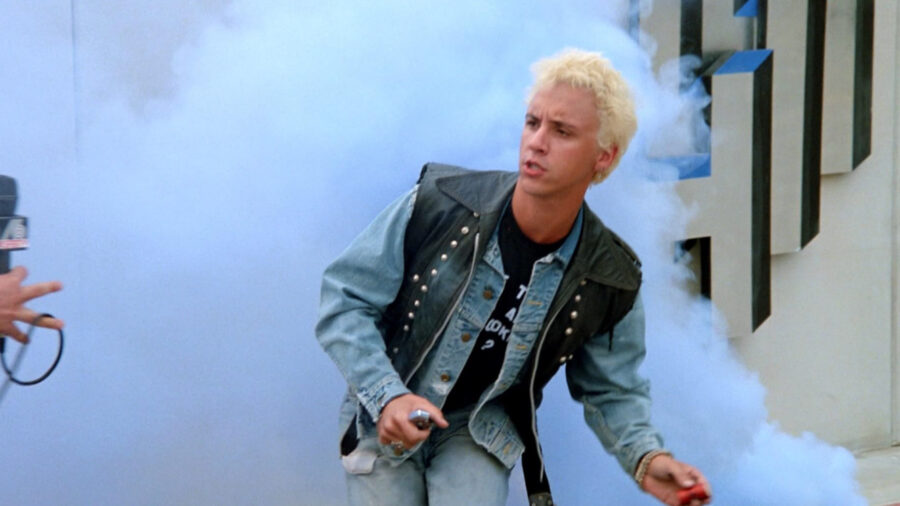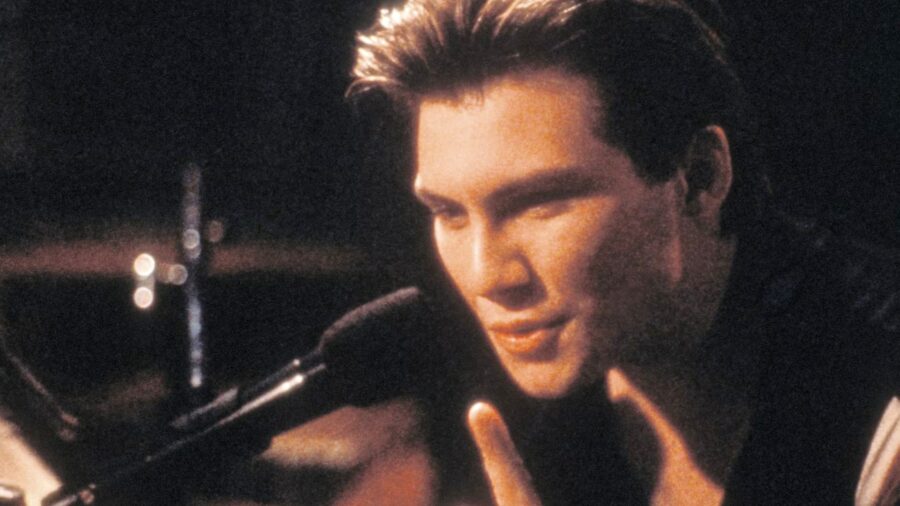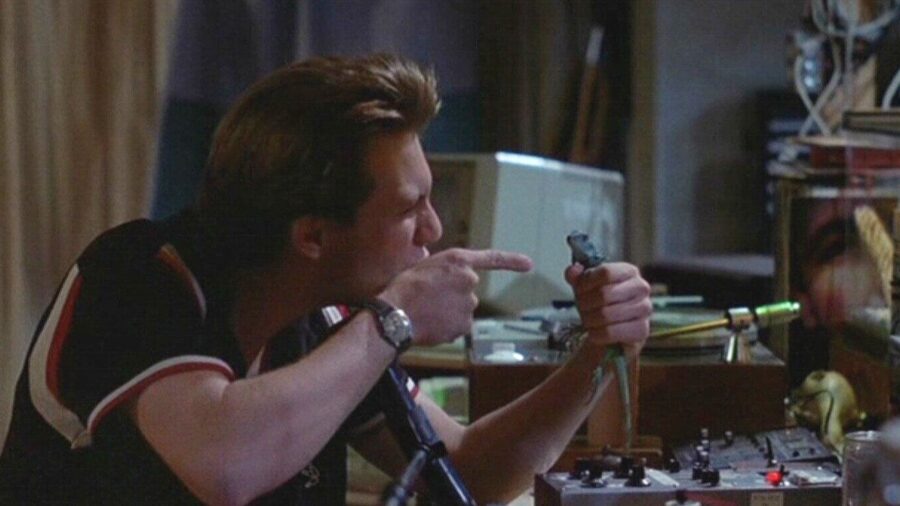The Must-See 1990 Fight The Power Teen Comedy Being Hidden Away From New Fans

A great number of films have been dedicated to capturing the essence of teenage angst. Whether it’s James Dean rebelling against “whaddya got?” or a group of high school kids in Saturday detention at Shermer High School, the characters can often be seen as caricatures instead of real-life examples. The 1990 film Pump Up the Volume takes the angst and frustration of coming of age, but inserts a believable antagonist in its main role while simultaneously giving young actor Christian Slater the part of a lifetime.
Hard Harry

Pump Up the Volume is the story of the quiet kid in a new high school that is living a double life. During his school hours, Mark Hunter is a loner that barely gets any notice from his peers. But during the evening, the shy teen lives on the airwaves produced from his pirate radio station under the moniker Happy Harry Hard-on (Hard Harry, for short) and entertains listeners across his Phoenix suburb from the station he constructed inside his parents’ basement.
Hard Harry introduces his listeners to a broad array of music befitting of a teenager riddled with angst and anxiety. In between tracks, he entertains with philosophical musings sophomoric humor, helping to increase his fan base. He encourages listeners to write to him at a P.O. box, letters from which he sometimes reads on air.
Everyone Blames Hard Harry

Pump Up the Volume takes a dark turn when one listener, Malcolm, writes to Hard Harry about how he is contemplating suicide. Hard Harry reads the letter on air and has a somewhat dismissive response to it as if he isn’t believing that his fan is serious. When news travels around school the next day that Malcolm indeed followed through with his suicidal thoughts, Mark is wrought with guilt.
This sets up a series of events where teachers (and eventually the local police and the FCC) begin to blame all of the problems at the high school on Hard Harry and the bootleg recordings of his nightly show. With only one ally in tow, Mark sets out on a mission to set the record straight about what is really going on with his peers, their parents, and how some authority figures are setting them up for failure as adults.
Christian Slater

Pump Up the Volume is an early Christian Slater film, and one that really showcases how versatile his acting abilities are. Slater’s ability to believably contrast shy Mark Hunter with the obnoxious Hard Harry is amazing to watch, with each persona capable of making viewers laugh, ponder, and really feel.
Questioning Authority

The film uses the overreaching authority figures film trope, casting Annie Ross as the villainous principal Loretta Creswood. Ross’s performance is in near perfect balance with the rebellious message Hard Harry is conveying to Creswood’s students, a yin/yang relationship that is eventually pressed to its breaking point. Ross plays the part well, and will likely remind many audience members of the most despised teachers/principals from their own educations.
The various undertones of Pump Up the Volume were successfully wound around the film’s overarching message that, while we may feel isolated and alone in our fears, that there is support. The rebellion against conformity and the questioning of authority that Hard Harry pushes gives the film a strong social message that is as timeless as it is truthful, making the film all the more relatable. These strong attributes flow along the film’s 105-minute runtime to one of the other great features, the Pump Up the Volume soundtrack.
The Music

The soundtracks of this era are just as powerful as the films that they accompany. Where The Crow (1994) had musical endeavors that captured the essence of sorrow and anger and SLC Punk’s (1998) tracks strove to highlight that film’s anti-social messaging, Pump Up the Volume was able to unbottle all the feelings of being an outcast with one solid set of songs. Concrete Blonde, Bad Brains, Urban Dance Squad, and Soundgarden combined with others on the film and on the official soundtrack to deliver the perfect score for teenage rebellion.
Watch It How You Can


GFR SCORE
Overall, Slater’s screen performance and director Allan Moyle’s ability to grasp a complicated set of teenage emotions and transfer it believably to the screen truly work to elevate Pump Up the Volume to a well-deserved 4.0/5.0 star film. Of course, hearing Leonard Cohen’s “Everybody Knows” throughout the film (as it is the opening track to every Hard Harry radio show) also works to the movie’s advantage.
Pump Up the Volume cannot be found on any streaming service or rented On Demand. As recently as 2021, a remastered Blu-ray version was released but had no special features or extras included. To date, the only way to see this iconic film is to secure a copy on physical media, which thankfully isn’t cost prohibitive.












